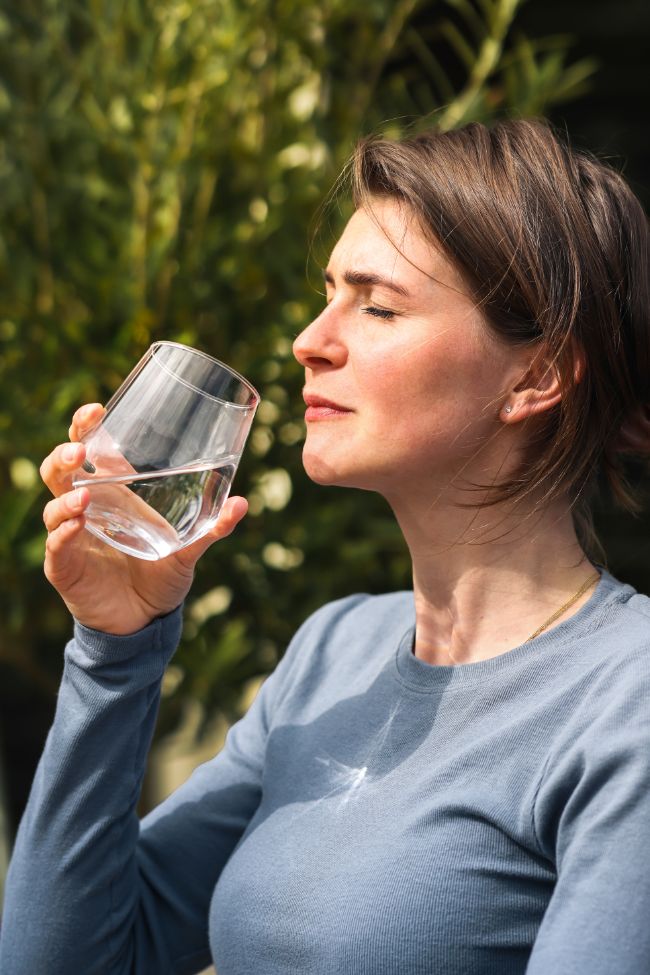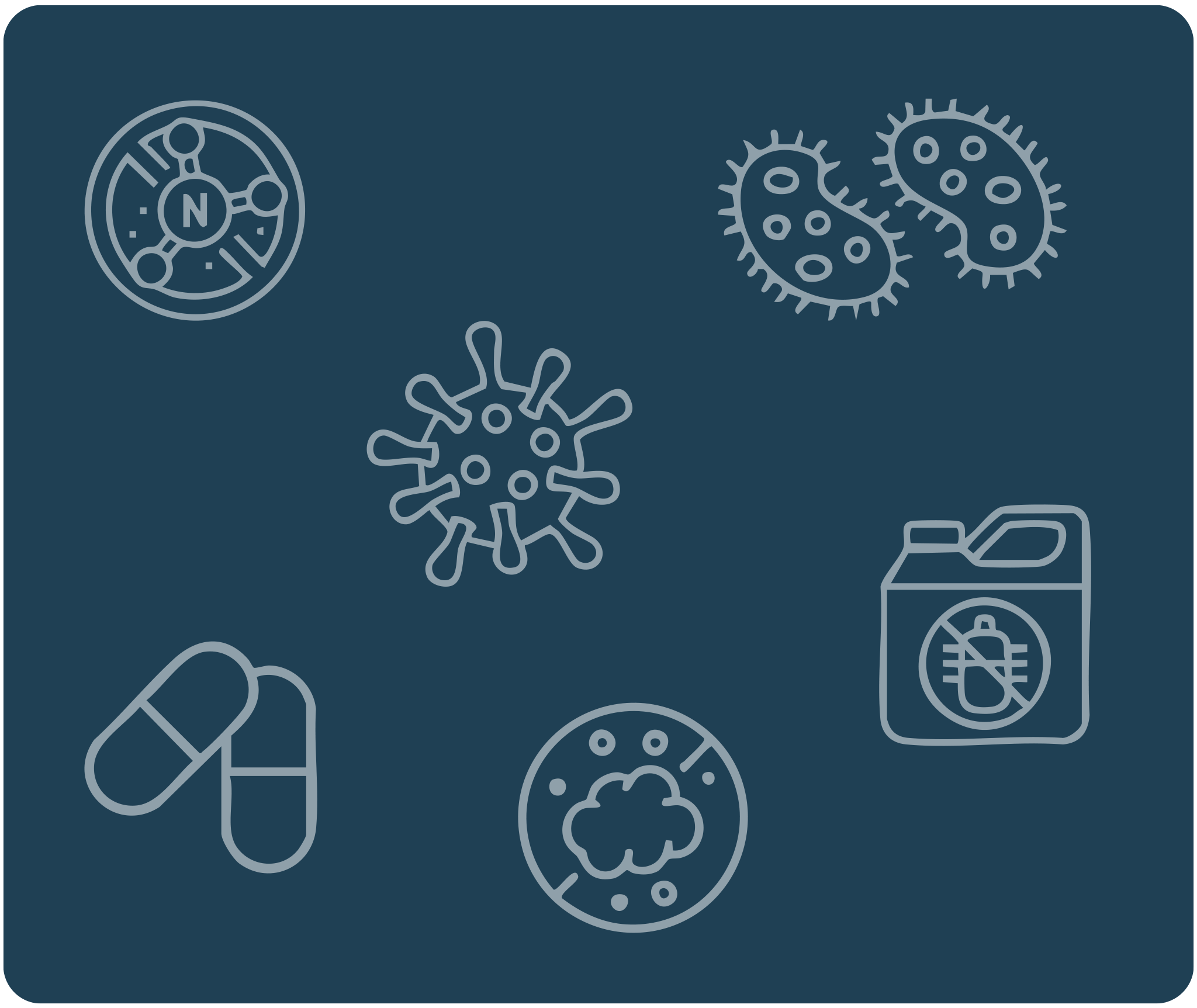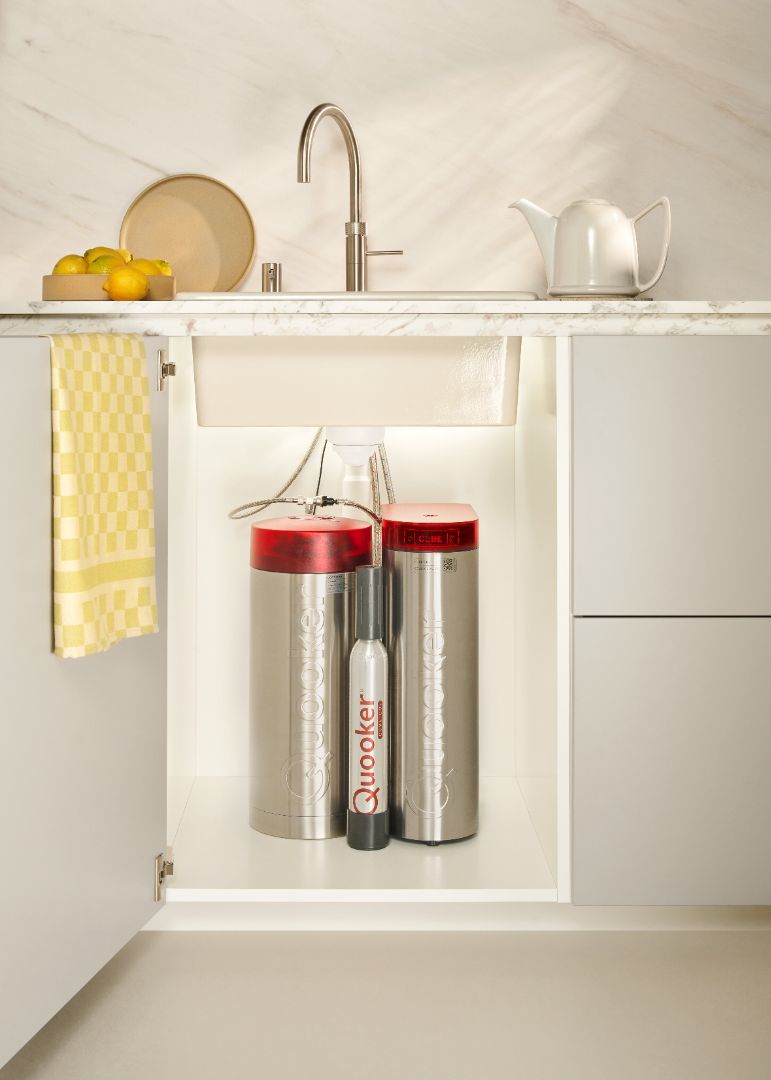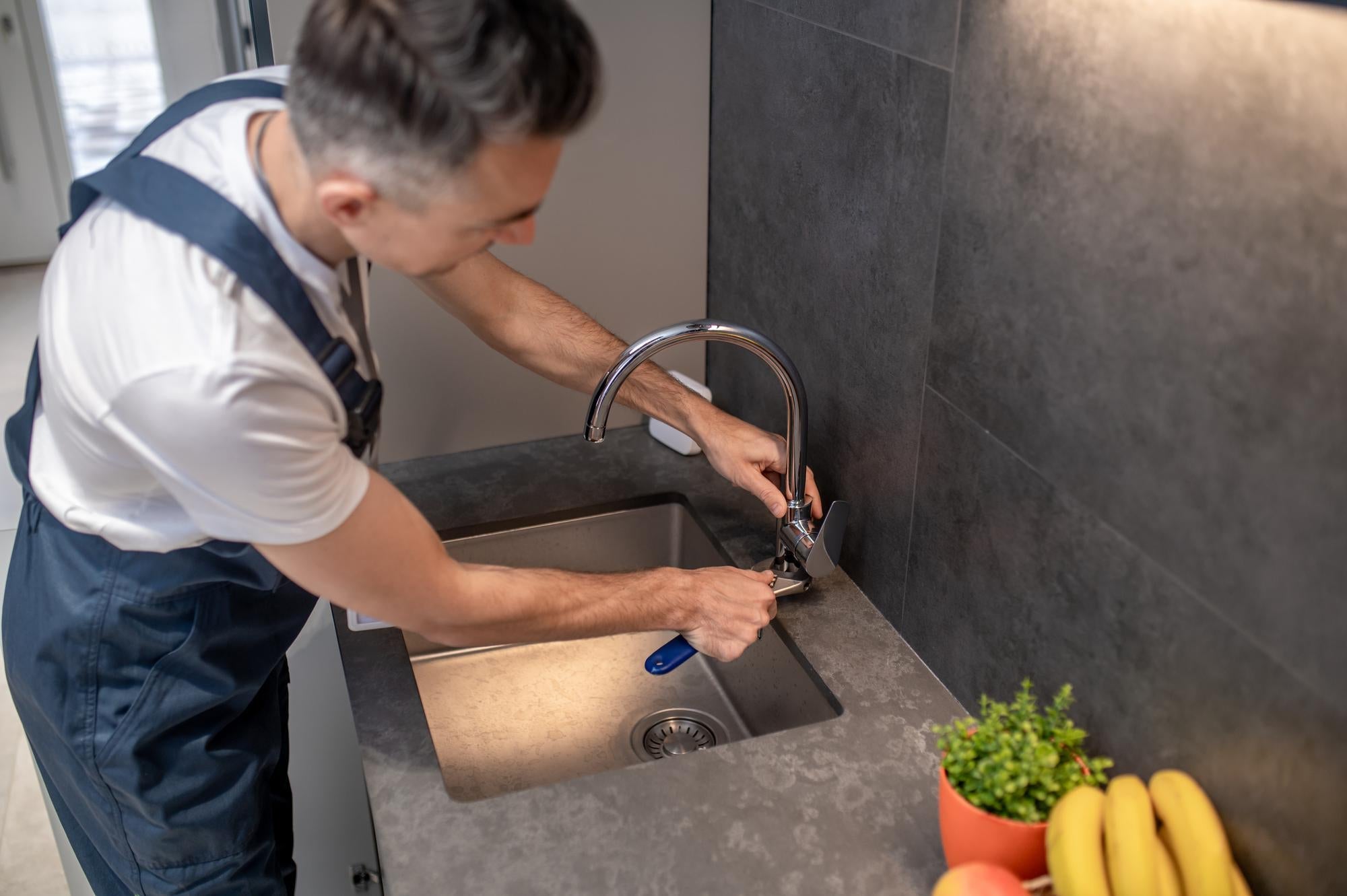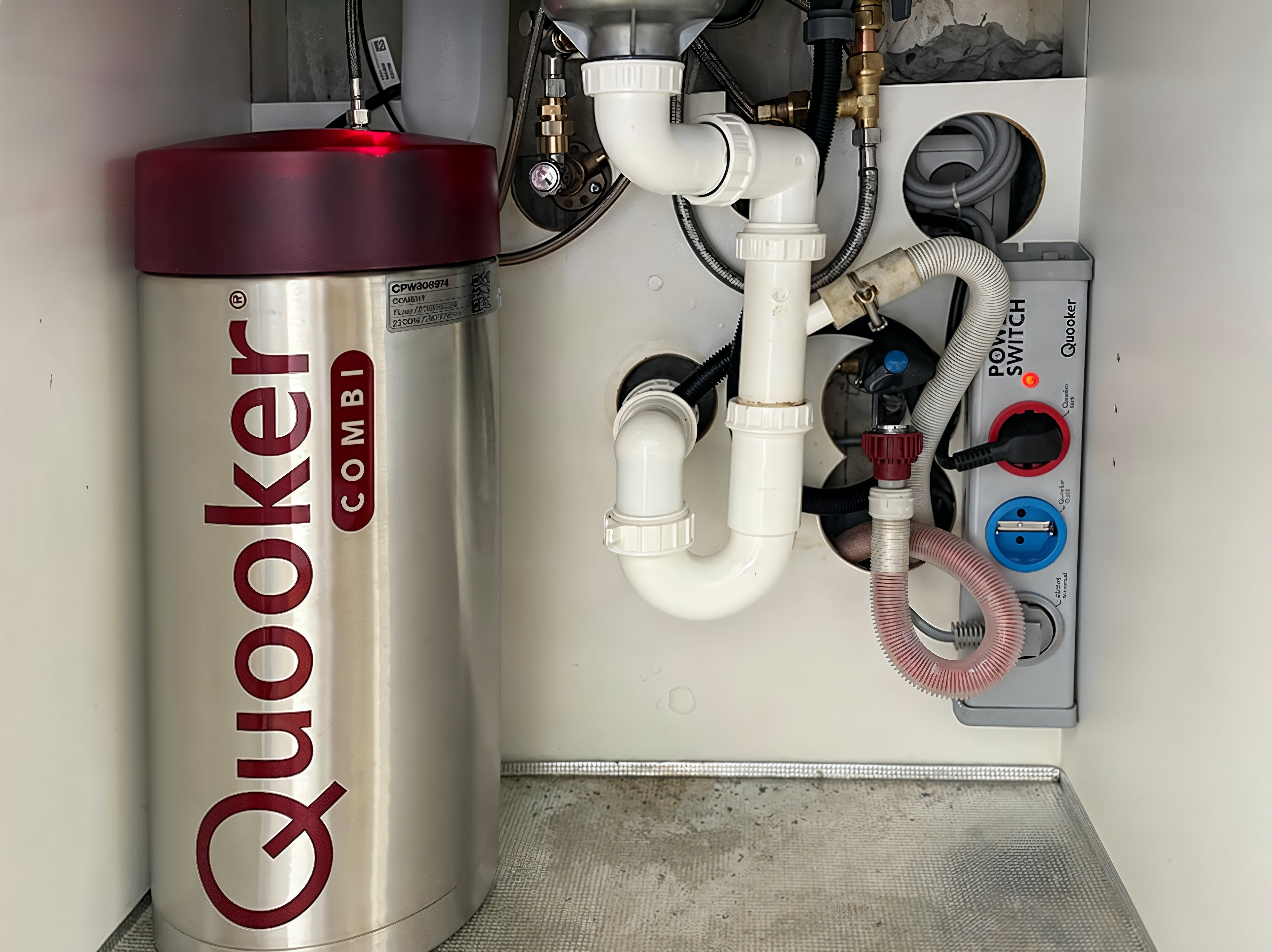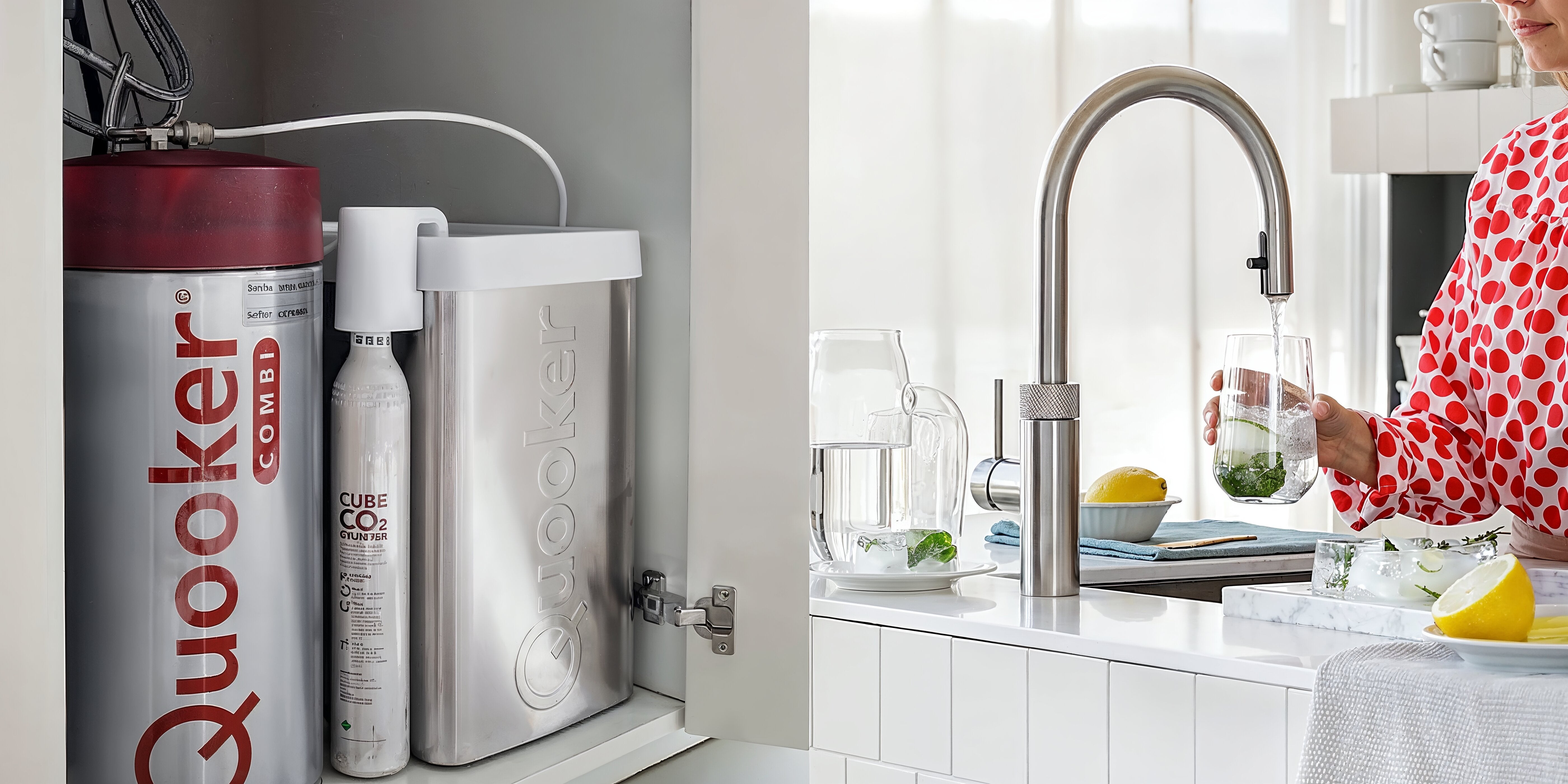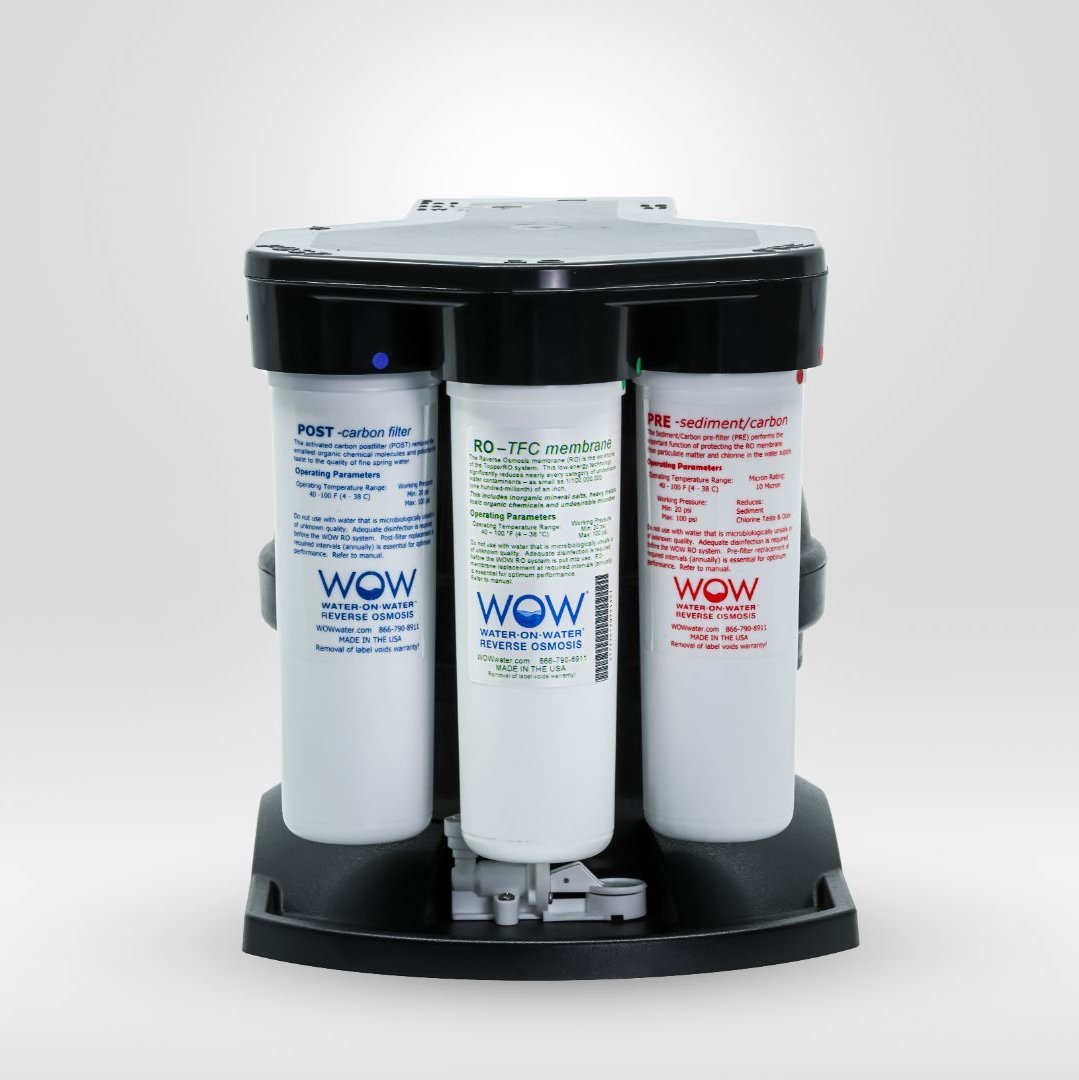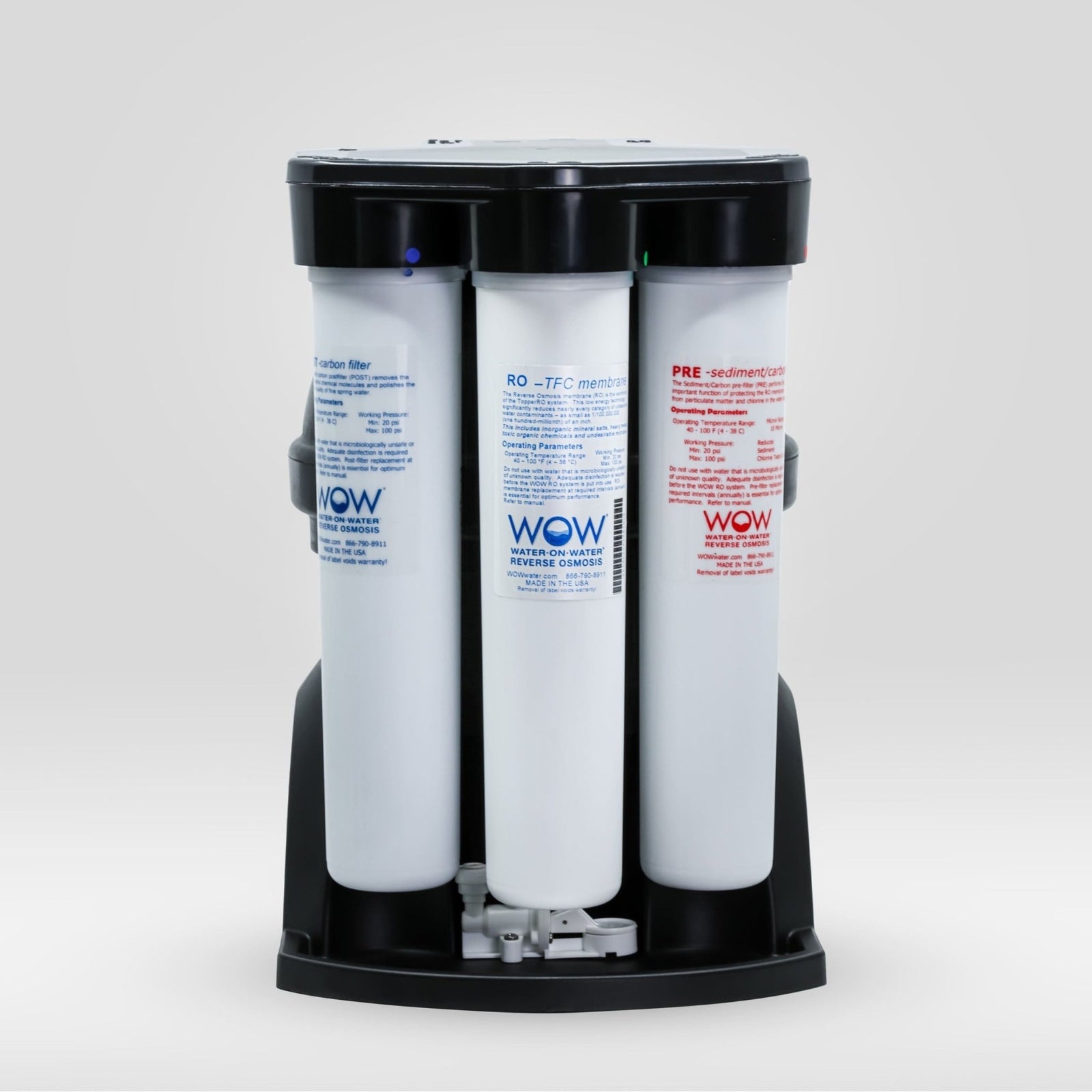Tap water can indeed cause symptoms similar to allergic reactions, although a true water allergy (aquagenic urticaria) is extremely rare. Most symptoms are caused by chemicals in the water, such as chlorine, chloramines, heavy metals, and other additives, which can stimulate the immune system. These substances can lead to skin irritation, itching, stomach upset, or respiratory problems, especially in people with existing sensitivities.
Why do people wonder if tap water can cause allergies?
Concerns about water quality are growing as traces of pharmaceutical residues, pesticides, PFAS, and other micropollutants are increasingly found in our drinking water. These substances are invisible but can trigger physical reactions. Climate change, outdated infrastructure, and residues from pharmaceuticals and agriculture are making it increasingly challenging to get clean water from the tap.
Many people experience symptoms such as headaches, nausea, or a rash after drinking tap water. While this is rarely due to a true water allergy, the chemical additives in tap water can indeed activate the immune system. The body then reacts to these substances as if they were allergens, leading to inflammation and discomfort.
The relationship between water composition and physical reactions is complex. While aquagenic urticaria (an allergic reaction to water itself) affects fewer than 100 people worldwide, reactions to substances in water are much more common. This distinction is crucial for understanding water-related symptoms.
Which substances in tap water can trigger allergic reactions?
Several chemicals in tap water can cause symptoms similar to allergic reactions:
- Chlorine and chloramines : These disinfectants can cause skin irritation, eye irritation and respiratory problems.
- Heavy metals (nickel, copper, lead): Can cause skin rashes, itching and gastrointestinal complaints
- Fluoride : In some people this can cause skin reactions or stomach complaints.
- Pesticides and herbicides : May cause neurological symptoms and skin problems
- Drug residues : Hormones and antibiotics can disrupt the immune system
- PFAS : These “eternal chemicals” can trigger inflammatory responses
These substances stimulate the immune system in various ways. Chlorine, for example, can damage the skin's natural protective layer, making it more susceptible to irritation. Heavy metals like nickel are known contact allergens that can trigger immediate skin reactions in sensitive individuals.
People with existing allergies, eczema, or weakened immune systems are particularly sensitive to these substances. Their bodies react more strongly to the chemical load in tap water, resulting in more pronounced symptoms.
How do you recognize symptoms caused by tap water?
Symptoms that may be caused by tap water vary widely but often include:
| Type of symptom | Specific complaints | When to perform |
|---|---|---|
| Skin reactions | Itching, redness, rash, dry skin | Immediately after showering or within hours of contact |
| Gastrointestinal complaints | Nausea, abdominal pain, diarrhea | 30 minutes to several hours after drinking |
| Breathing problems | Coughing, wheezing, stuffy nose | During/after showering or when inhaling water vapour |
| Neurological complaints | Headache, dizziness, fatigue | Gradually with regular use |
The difference between immediate allergic reactions and intolerance symptoms is important. Allergic reactions usually occur quickly (within minutes to hours) and directly involve the immune system. Intolerance symptoms develop more slowly and are often the result of a buildup of substances in the body.
A medical diagnosis is essential for determining the actual cause. Many symptoms can have multiple causes, and only a professional examination can determine whether tap water is actually the culprit.
What can you do if you suspect that tap water is causing your symptoms?
If you suspect tap water-related complaints, there are several steps you can take:
- Keep a symptom diary : Note down when symptoms occur, what you drank and what activities you did.
- Test your water composition : Have your tap water analyzed to see which substances are present
- Consult a physician or allergist : Professional diagnosis is crucial for appropriate treatment
- Consider bottled water temporarily : This can help determine if tap water is the cause
- Invest in water filtration : A home water filter system can remove problematic substances
Reverse osmosis systems are particularly effective at removing substances that can cause reactions. This technology filters up to 99% of impurities from tap water, including chlorine, heavy metals, pesticides, and pharmaceutical residues. This offers a permanent solution for people with sensitivities.
It's important to be patient when identifying the cause. Some symptoms may not disappear for weeks after you stop drinking certain water, as the body needs time to eliminate accumulated substances.
Important considerations regarding tap water and allergy symptoms
Tap water rarely causes actual allergies, but the chemicals in it can certainly trigger similar reactions. The important thing to remember is that these reactions are usually caused by additives in the water, not the water itself.
Professional diagnosis remains essential. Self-diagnosis can lead to missing other important health problems. A doctor can prescribe blood tests, skin tests, and elimination diets to determine the exact cause of your symptoms.
For people with proven sensitivities to substances in tap water, water filtration can offer an effective solution. Modern filtration systems with reverse osmosis technology remove virtually all potentially problematic substances, allowing you to enjoy water worry-free again.
Clean, purified water is essential for health and well-being. Whether you suffer from sensitivities or simply want the purest water quality, investing in good water filtration ensures your body gets what it needs without unwanted side effects. With the right approach, you can once again enjoy water as it was meant to be: pure, fresh, and beneficial for your body.
